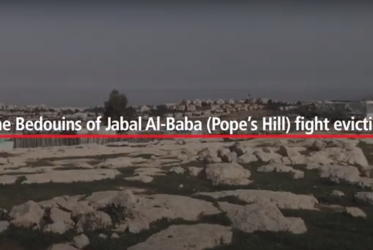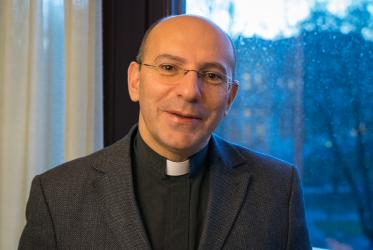Mostrando 1 - 20 de 23
As Bethlehem prepares for Christmas, ‘it’s all about community’
08 Diciembre 2022
In Lebanon, “without peace there is no justice”
21 Julio 2021
Video: Freedom to worship - Easter Initiative 2021
01 Abril 2021
Video: Khan Al Ahmar - Easter Initiative 2021
01 Abril 2021
Video: Freedom to worship - Easter Initiative 2021
01 Abril 2021
Video: Khan Al Ahmar - Easter Initiative 2021
01 Abril 2021
Un ecumenista palestino esperanzado, pero no optimista
10 Diciembre 2020
Palestinian Christian peace worker yearns for courageous leaders
10 Diciembre 2020
A hopeful, but not optimistic Palestinian ecumenist
09 Diciembre 2020










